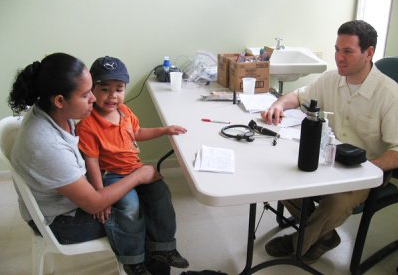
By Kate Rauch
Nearly 235 million people currently suffer from asthma worldwide and it is the most common chronic disease among children, according to the World Health Organization. And this number – which includes nearly 26 million in the U.S. – is rising.
In the search for clues on the global increase of the potentially deadly condition, Joshua Galanter, MD, an assistant professor in the schools of pharmacy and medicine at UC San Francisco, is turning to the Olancho region of Honduras, a hilly agricultural area known for dairy farms, cattle ranches and fields of maize. It’s also an area with high rates of asthma relative to the rest of the world.
While there are theories about what causes this prevalence – dusty roads, smoky wood cook stoves – there is no clear answer.
Galanter is leading a multi-year epidemiological study to better understand Olancho’s asthma rates. In doing so, he hopes to ferret out key knowledge on the environmental, social and genetic causes of asthma.
“Asthma rates have gone up worldwide at very disparate rates across countries, and there’s a striking variability,” said Galanter, who has a background in pulmonary and critical care and clinical pharmacology. “There are differing views on why, different hypotheses. My interest is in the genetics and environmental factors that lead to asthma.”
Studying Effects of Wood Burning on Asthma Rates
For several years, Galanter has traveled to Olancho along with a diverse group of physicians, nurses, respiratory therapists, pharmacists and pharmacy students as part of The Pulmonary Brigade medical team to treat asthma. A common assumption is that the area’s asthma rates are tied to the popularity of indoor wood-burning stoves, he said.
High in toxic gases and particulate matter, wood smoke is known to take a toll on the lungs. It’s linked to lower respiratory infections in children and Chronic Pulmonary Obstruction Disease (COPD) in adults.
While wood smoke is also believed to exacerbate asthma, triggering attacks, a clear connection to the development of asthma has never been established, Galanter said.
Read more at UCSF.edu
Related stories on K Scholars:
Q&A With Co-Director of UCSF's K Scholars Program
ER Patients Unlock Vital Info to Treating Acute Respiratory Distress Syndrome
Investigating a Link Between Oral Health and Kidney Function
